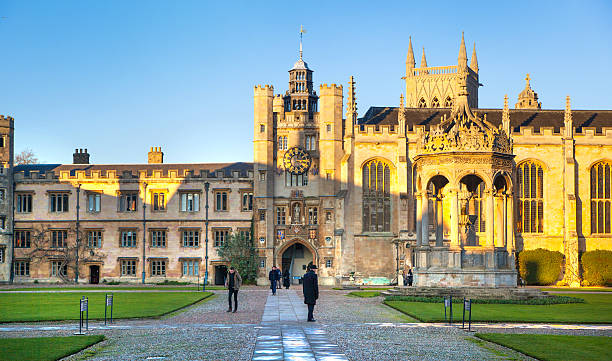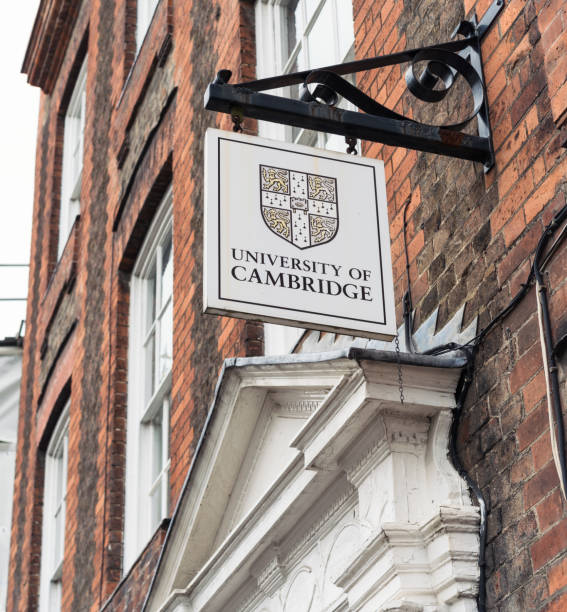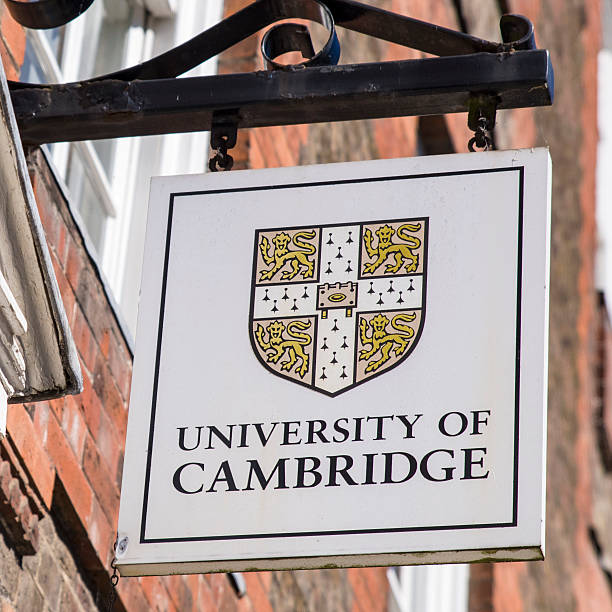A Legacy of Excellence: Exploring the University of Cambridge in the United Kingdom
Introduction

Nestled in the picturesque city of Cambridge, England, the University of Cambridge stands as an iconic symbol of academic brilliance and historical significance. Established in 1209, it is not only one of the oldest universities in the world but also consistently ranks among the top institutions globally. Renowned for its rich intellectual heritage, pioneering research, and vibrant academic community, the University of Cambridge continues to shape the future of education and knowledge.
Historical Roots:
The University of Cambridge traces its origins to a group of scholars who fled Oxford in the early 13th century following a dispute with townspeople. Seeking refuge, they settled in the town of Cambridge and established a center of learning that would evolve into one of the world’s most prestigious universities. Over the centuries, Cambridge has been a cradle of innovation, producing luminaries such as Sir Isaac Newton, Charles Darwin, and Stephen Hawking, whose groundbreaking contributions revolutionized science and scholarship.
Academic Excellence
At the heart of the University of Cambridge’s enduring reputation is its unwavering commitment to academic excellence. With over 100 academic departments spanning arts, humanities, sciences, engineering, and medicine, Cambridge offers a diverse range of undergraduate and graduate programs. Its rigorous curriculum, taught by leading experts in their fields, challenges students to think critically, innovate, and push the boundaries of knowledge. The university’s tutorial system, which emphasizes small-group teaching and individualized attention, fosters intellectual curiosity and independent thinking among students.
Research Prowess
Cambridge is synonymous with cutting-edge research and discovery across a myriad of disciplines. Its extensive network of research centers, institutes, and laboratories provides a fertile ground for interdisciplinary collaboration and innovation. From exploring the mysteries of the cosmos to unraveling the complexities of human behavior, Cambridge researchers are at the forefront of scientific inquiry, driving advancements that have far-reaching implications for society and the world. The university’s contributions to fields such as biotechnology, computer science, and artificial intelligence have earned it global acclaim and cemented its status as a beacon of innovation.
Cultural and Collegial Environment
Beyond its academic pursuits, the University of Cambridge offers a vibrant and inclusive community where students, faculty, and staff from diverse backgrounds come together to exchange ideas and experiences. The university’s historic colleges, each with its own distinct traditions and architecture, provide a supportive and nurturing environment for personal and intellectual growth. Students engage in a wide array of extracurricular activities, from sports and arts to volunteering and entrepreneurship, enriching their educational experience and forging lifelong friendships.
Global Impact
Cambridge’s influence extends far beyond the cobblestone streets of its historic campus. Through partnerships and collaborations with institutions, governments, and industry leaders worldwide, the university fosters global cooperation and knowledge exchange. Its alumni, numbering in the hundreds of thousands, occupy prominent positions in academia, government, business, and the arts, making significant contributions to their respective fields and communities. As the world grapples with complex challenges ranging from climate change to public health, Cambridge remains steadfast in its commitment to driving positive change and shaping a better future for all.
Which is better Oxford or Cambridge?

The question of whether Oxford or Cambridge is better is subjective and ultimately depends on individual preferences, academic interests, and goals. Both universities are among the oldest and most prestigious institutions in the world, and each offers a unique educational experience characterized by rich traditions, rigorous academics, and a vibrant intellectual community.
Here are some key points to consider when comparing Oxford and Cambridge:
- Academic Reputation: Both Oxford and Cambridge consistently rank among the top universities globally in various international rankings. They excel across a wide range of disciplines, from the humanities and social sciences to STEM fields.
- Curriculum and Teaching: Oxford and Cambridge employ similar tutorial-based teaching methods, where students receive personalized attention from faculty members in small-group settings. Both universities offer challenging and intellectually stimulating programs designed to foster critical thinking, creativity, and independent inquiry.
- Campus and Atmosphere: Each university has its own distinctive atmosphere and culture. Oxford is characterized by its historic colleges, picturesque scenery, and bustling city center. Cambridge boasts stunning architecture, tranquil gardens, and a serene riverside setting. Visiting both campuses can provide insight into which environment feels like the best fit.
- Extracurricular Opportunities: Both Oxford and Cambridge offer a wealth of extracurricular activities, including sports, arts, societies, and student-led initiatives. Getting involved in these activities can enhance the overall student experience and provide opportunities for personal and professional development.
- Subject Strengths: While both universities offer a broad range of academic disciplines, they may have different strengths and specializations within certain fields. Prospective students should research the specific programs and departments relevant to their interests to determine which university aligns best with their academic goals.
Ultimately, the decision between Oxford and Cambridge comes down to personal preferences, academic aspirations, and individual fit. Both universities offer world-class education and unparalleled opportunities for intellectual growth and development. As such, prospective students should carefully consider their options, visit campuses, and gather information to make an informed decision that aligns with their values and aspirations.
How much GPA is required for Cambridge?

The University of Cambridge, like many prestigious universities, does not have a specific minimum GPA requirement for admission. Instead, the university considers a variety of factors when evaluating applicants, including academic achievements, standardized test scores, letters of recommendation, personal statement, and extracurricular activities.
While there is no minimum GPA requirement, successful applicants typically demonstrate strong academic performance, often with a GPA equivalent to or higher than a 3.7 on a 4.0 scale (or its equivalent in other grading systems). However, it’s important to note that GPA alone does not determine admission to Cambridge. The university looks for well-rounded candidates who show intellectual curiosity, passion for their chosen field of study, and the potential to thrive in Cambridge’s challenging academic environment.
Additionally, admission requirements may vary depending on the specific program or course of study. Prospective applicants are encouraged to thoroughly research the admission requirements for their desired program and consult with admissions officers or academic advisors for guidance on preparing a competitive application.
Conclusion
The University of Cambridge stands as a testament to the enduring power of education, innovation, and human potential. For over eight centuries, it has served as a beacon of intellectual excellence, inspiring generations of scholars to strive for greatness and make a meaningful impact on the world. As Cambridge continues to push the boundaries of knowledge and tackle the pressing issues of our time, its legacy of excellence and innovation will undoubtedly endure, shaping the course of history for centuries to come.
